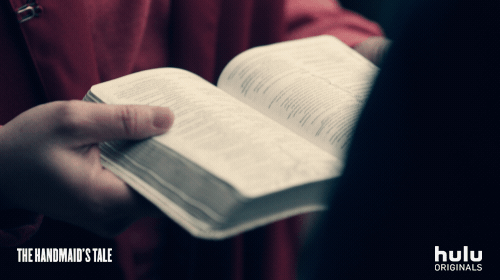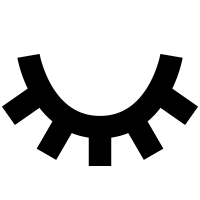Molly Bisset
Aspiring Writer/Breakfast Enthusiant
absent, neglected, skewed and modern.
Female Real Estate in the Realm of Creativity

Real Estate literally means the property consisting of land or building but I'm not really talking about buildings. I'm talking about the real estate we hold as women in the world of literature.
For the sake of us girls, let's keep this idea in terms of real estate. When you consider the 'business', by gender, we are lacking in two things;
1. Property
2. Respect.
For a very long time, women couldn't sell their properties in the Real Estate world of Creativity because men dictated what could and couldn't be sold. Men were there for first or for longer and for as much as the public knew, they sold better properties.
Let's talk about that beginning where women couldn't close deals of their utterly beautiful and powerful language. Back to writing, the public sphere wasn't ready for women to be in literature.
Trish Nicholson attempts to breakdown the initial stages of women in literature in her novel, A Biography of Story, A Brief History of Humanity. Before there were bindings filled with pages of words and information, there were myths. The absolute breakdown of language started with the word of mouth known as myth. According to myths, fertility is a gift of goddesses and writing came from the gods. In other words, women can only bring life into the world and men are the ones that write about everything. Yeah, it was pretty bad.
The power of language is the power to ‘recast history and command the future’ and the power to express untampered thought of an individual. Women were kept from this power because a proper education was only permitted to the most elite. Have the means for creativity always fallen to those of privilege? Has anything changed in our society today?
To understand the history of literature, it can be broken up into sections and categories. However, women didn't really have an intensive literary history until late 1900's. Elaine Showalter focuses on this further in her book, In A Literature of Their Own. Showalter addresses he movement in three stages, starting with the Feminine, marking the beginning of the use of male pseudonym in the 1840s and ending with George Eliot's death in 1840; then the feminist spanning from 1880 till 1920 marking the win of the vote and lastly, the Female, from 1920 till a more current time. The last stage includes a "new stage of self-awareness about 1960."
As broken down in Nicholson’s article, The Feminine Stage
The first stage referred to as the Feminine Stage is basically when we tried to get into the game. For lack of a better explanation, we were sick of being benched and wanted some playing time. The Feminine phase includes women writers such as Charlotte Brontë, Elizabeth Gaskell, Elizabeth Barrett Browning and more. Women writers were attempting to participate in the public sphere of writing, a primarily male tradition at this point. In their works, you can sense a strong theme of both compliance and resistance because of the circumstances.
The second stage gets a little more interesting. No more compliance. Women writers lashed out against the traditional values during this time period. You could sense the deviance and more importantly, demand in their works. It was a time of commentaries. In her words, "fiction the vehicle for dramatization of wronged womanhood...demanding changes in the social and political systems that would grant women male privileges and require chastity and fidelity from men." As explained by Elizabeth Lee in her article, "Women in Literature" on The Victorian Web, Showalter didn't consider these texts examples of literary art. Instead, these examples concerned themselves more with 'the rejection of male-imposed definitions and self-imposed oppression' than the creative sphere of literature. The feminism stage propped the door open to enter the realm of "female identity, theory and the female aesthetic."
Last but not least, the Female. It was about self-discovery and FREEDOM, well it was a start to freedom. Sexuality was evaluated and the female experience was talked about. Elizabeth Lee states "These women applied the cultural analysis of the feminists to words, sentences and structures of language in the novel." Showalter's work breaks down the progress of women's literature. Women's literature exists in the public sphere of creativity; however, it is built around ideologies of the conflicts and struggles faced to get into the sphere.
The women that were able to publish their writing in a society that was made up of solely patriarchal knowledge; without forgetting about the women that didn't have the opportunity. I guess write is too specific of a word. Women were absent in the creative world for too long and even now, their existence is jeopardized on occasion.
The unfortunate reality of women in the creative world is that our existence as a gender has always been heavily influenced by men. More currently, the masculine influence has consisted of a feminine backlash from us. Regardless, we weren't there because of men and when we finally were present, it was also because men were getting that much closer to listening to us and seeing us and understanding us. The key word there is closer;
what else is there to compare it to?
close but no cigar kind of closer.
As I attempt to get closer to understanding women's position throughout the history of literature; I hope to understand why the patriarchy has become a part of our identity. We constantly fight the system, obsess over the presence, question and argue the ideologies behind masculinity. Most importantly, the patriarchy drives our creative mind in some instances.
Alright, let's take it back to the beginning and I mean WAY back. Before there were screens, keyboards or any of that jazz; there was Mary Wollstonecraft.During her lifetime, Mary published Thoughts on the Education of Daughters: With Reflections on Female Conduct, in the More Important Duties of Life (1787), Vindication of the Rights of Man, and most famously, Vindication of the Rights of Woman. There was no question about it; Mary Wollstonecraft had a lot to say about women. And, guess what? Men had a lot to say back. Taking a step back, consider what got her talking... or writing. Most of her early adult-life was spent hiding her sister, Eliza, from her abusive husband. How could she not consider women's existence following our uneducated doomsday during this era?
Next, let's talk about her daughter, Mary Shelley. Mary Shelley published Frankensteinin 1818 when she was twenty-one years old. (Side note: I'm twenty-one and writing this while eating a string cheese and Mary Shelley published what is known to be the first science fiction novel. Awesome.) Frankenstein is largely important to this day in modern English courses around the world, however, there is a presence of feminist controversy that surrounds the discussion of the novel. Yes,Frankenstein is written by a female author, however, the entire plot line is focused around masculine characterization.
We finally get into the game of literature and MEN ARE STILL CONTROLLING IT.
Disclosure: I'm skimming through the female presence in the creative world of literature; however, I am by no means demeaning it or down playing said presence. Our skewed voice in the realm of language has been aggressively voice-overed and auto tuned in its entirety.
Thereafter, Virginia Woolf published her essay 'A Room of One's Own'speaking volumes to women regarding wealth and education in 1928. In other words, Virginia asked the question "why are women getting jipped?!" Why is that women couldn't make any money? And if they could, why couldn’t they ever do anything with it?
I will give you a hint: three letters, men.
"All I could do was to offer you an opinion upon one minor point—a woman must have money and a room of her own if she is to write fiction; and that, as you will see, leaves the great problem of the true nature of woman and the true nature of fiction unsolved. I have shirked the duty of coming to a conclusion upon these two questions—women and fiction remain, so far as I am concerned, unsolved problems" (1, Woolf).
Virginia's essay takes us on a fictional journey on why women were always so poor and frankly, we still are. The later allusion and or hypothetical to Shakespeare's sister, Judith, sums it up in the most extreme way. Judith is right up there with Shakespeare, brilliant and intelligent; however, she is a woman. As the tale goes on, she kills herself without writing a single word that would ever be read meanwhile Shakespeare is emerges himself in the world of language and theater.
"If one is a woman one is often surprised by a sudden splitting off of consciousness, say in walking down Whitehall, when from being the natural inheritor of that civilization, she becomes, on the contrary, alien and critical" (Woolf).
In the past, we were kept out and alienated from the world of literature and now you could say we have made a mark. Is our mark on the creative sphere now just shaped around a masculine acceptance?
Fast forward almost one hundred years to today: the leader of the free world calls women "dogs." I don't know about you all, but I most certainly call this a regression.

We have to returned to a former or less developed state. I can say with confidence that Margaret Atwood is laughing to herself saying the words, 'I told you so.' She really did when she published her satirical novel, The Handmaids Tale, in 1985. Atwood overlaps present day with a fictional society known as the Gilead Republic, representing a hard-hitting patriarchal government structure. The culture of Gilead is not really as fictional as it seems; it parallels as an exaggerated version of our society.
The Republic of Gilead is a government structured by masculinity. The status of a women's husband ranks their class in the Republic. Additionally, the handmaids are classified by their actions in the time before the Gilead. What is really different?
Women could read and write because men finally allowed them to do so. Women could finally publish their work because male publishers gave their texts a second look. And now, the critically acclaimed work by females is more often than not critically acclaimed because of their critique on masculine forces. Cough cough, The Handmaids Tale, which is now a major television series.
Where does this leave us?

To answer that question, I'm not quite sure if I am part of the problem or the solution. My words exist in the category of feminine commentary on a masculine presence along with the rest of them. Masculine forces have shaped how I consider the backbone of literature as a whole and how we fit in it.
